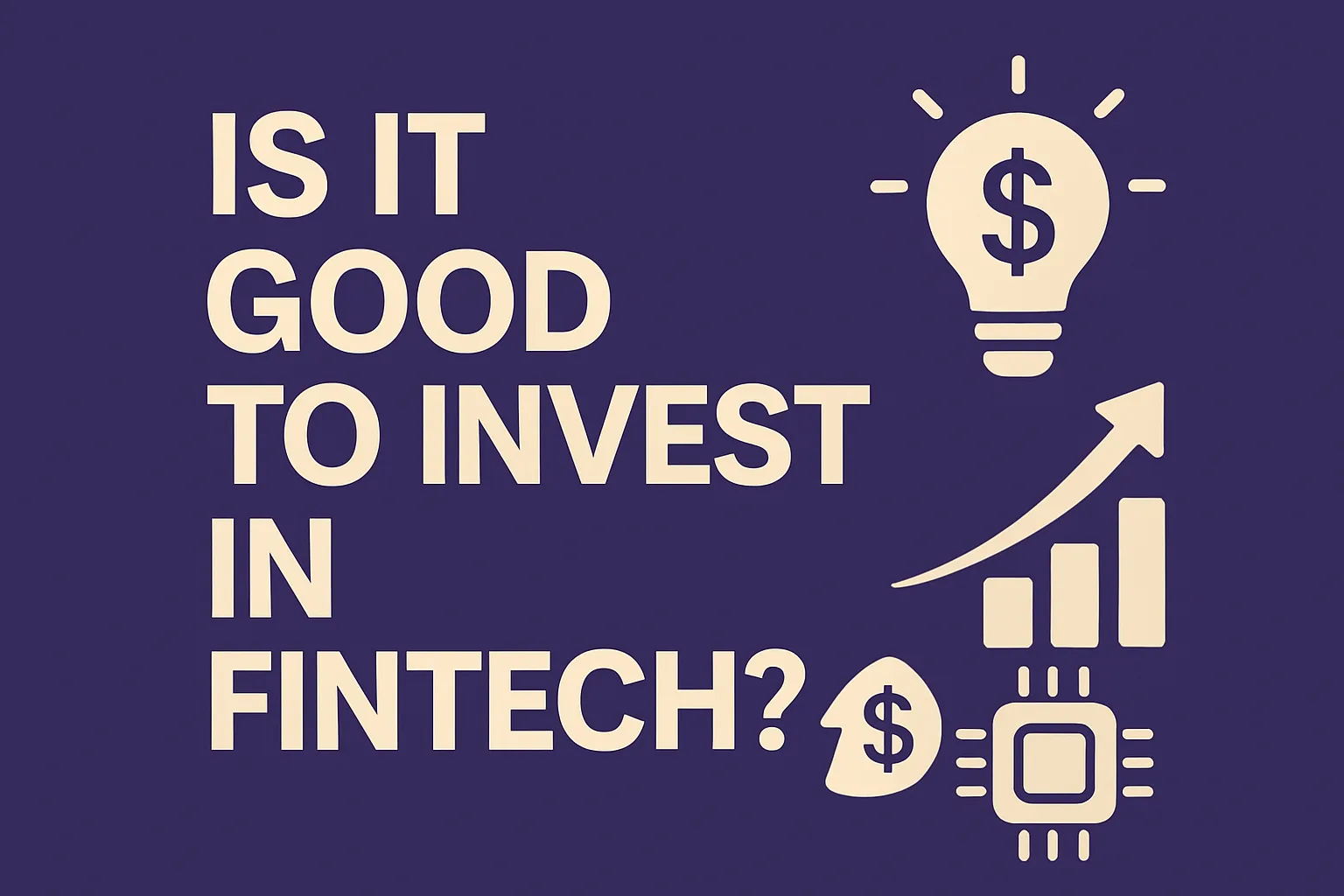The financial technology sector, or fintech, has grown from a niche innovation area into a core part of the global economy. As new startups reshape banking, payments, lending, and wealth management, investors are asking the right question: Is it good to invest in fintech in 2025?
The answer depends on your risk appetite, investment horizon, and understanding of the market. In this article, we explore the opportunities, challenges, and key trends to consider before deciding to invest in fintech.
Why People Want to Invest in Fintech
Fintech is attractive because it combines growth potential with clear real-world use cases. From mobile payments to robo-advisors, fintech companies are embedded in the daily lives of consumers and businesses. The shift towards cashless economies, open banking regulations, and digital-first financial services is fuelling demand across the sector.
Investors are drawn to fintech because:
- The sector is growing faster than traditional financial services
- Fintech startups often disrupt inefficient legacy systems
- There is increasing adoption by both consumers and institutions
- M&A activity and IPOs can generate strong returns
In short, to invest in fintech is to bet on the future of finance itself.
Fintech Market Growth Outlook

Fintech is not a short-term trend. According to market analysts, the global fintech market is expected to surpass $500 billion in value by the end of the decade. The strongest growth is in digital banking, blockchain, embedded finance, and AI-powered financial tools.
In emerging markets, fintech is expanding access to financial services where traditional banking infrastructure is limited. In developed economies, fintech firms are capturing market share by offering faster, cheaper, and more personalised solutions.
As a result, many analysts see long-term upside for those who invest in fintech companies that solve real problems and scale efficiently.
Risks and Volatility in Fintech Investments

Despite its potential, fintech investment comes with risks. The sector is highly competitive, often overvalued in hype cycles, and subject to changing regulations. Investors should be cautious of speculative startups with no clear path to profitability.
Here are common risks when you invest in fintech:
- Regulatory shifts: Fintech firms often operate in grey areas, which can lead to future compliance costs
- High competition: The barriers to entry are relatively low, meaning many players chase the same market
- Tech dependency: Security breaches or tech failures can severely damage trust and brand value
- Valuation pressure: Some fintech stocks have faced steep corrections after over-optimistic IPOs
Diversifying across different types of fintech companies and stages, early-stage, growth, and public, can help reduce risk while maintaining exposure to the sector.
Best Ways to Invest in Fintech

There are several ways to invest in fintech, each suited to different profiles:
1. Public fintech stocks: Established firms like PayPal, Block (Square), SoFi, and Adyen offer liquid exposure to the sector. These stocks are often easier to analyse due to available financial data.
2. Fintech ETFs: For broader exposure, thematic ETFs like ARKF or Global X FinTech ETF provide a basket of fintech-related companies across payments, digital banking, and lending.
3. Venture capital and private equity: Accredited investors may access early-stage fintech startups via angel networks or fintech-focused VC funds. This involves higher risk but potentially higher reward.

4. Crowdfunding platforms: Equity crowdfunding enables individuals to invest in pre-IPO fintech startups. Platforms like Republic, and Crowdcube specialise in this area.
5. Indirect exposure: Investors can also invest in fintech infrastructure firms, such as cloud providers or security vendors, that support the fintech ecosystem.
Whichever route you choose, it is essential to research carefully and understand the business model and market potential before you invest in fintech.
Which Areas of Fintech Show the Most Potential?
Not all fintech sub-sectors are equal. Some show higher resilience and profitability than others.
Payments: Digital wallets, cross-border transfers, and contactless payments continue to lead the sector in transaction volume and user growth.
Embedded Finance: More non-financial companies are integrating financial services into their apps. They are offering loans, insurance, or payments directly to users.

Regtech: Compliance automation and fraud prevention tools are growing in importance as regulations tighten.
Wealthtech: Robo-advisors and digital investment platforms are democratising wealth management and showing strong growth, especially among younger users.
Blockchain and DeFi: While volatile, blockchain-based financial services offer high innovation potential, particularly in decentralised lending, tokenisation, and cross-border finance.
Investors looking to invest in fintech should analyse the sub-sector dynamics, addressable market, and business fundamentals.
Conclusion: Should You Invest in Fintech?
Yes… but selectively. Fintech remains one of the most dynamic sectors in the global economy, offering opportunities for both early-stage and long-term investors. To invest in fintech is to participate in the ongoing transformation of how the world handles money, credit, insurance, and investing.
However, not every fintech firm will succeed. The best approach is to focus on companies solving real problems with clear revenue models and sustainable growth strategies. Diversification, due diligence, and patience are key.
If you are prepared to navigate the volatility and focus on long-term fundamentals, now may be an excellent time to invest in fintech.














